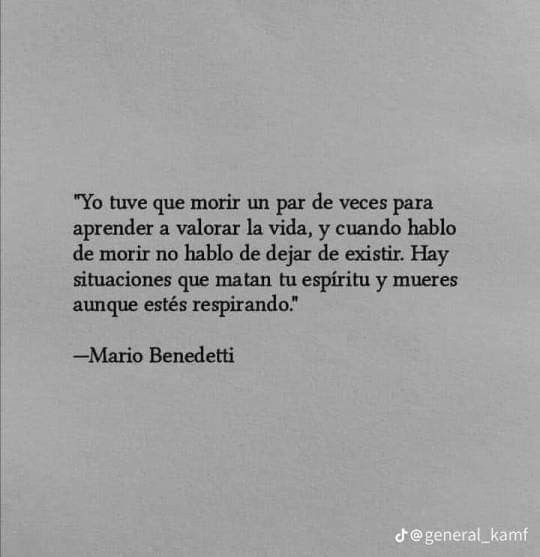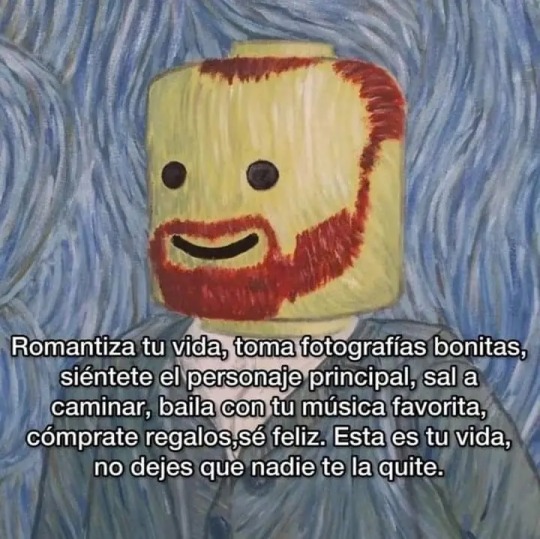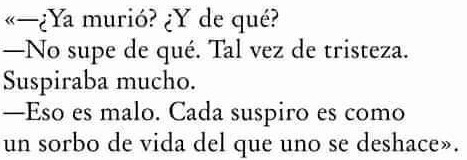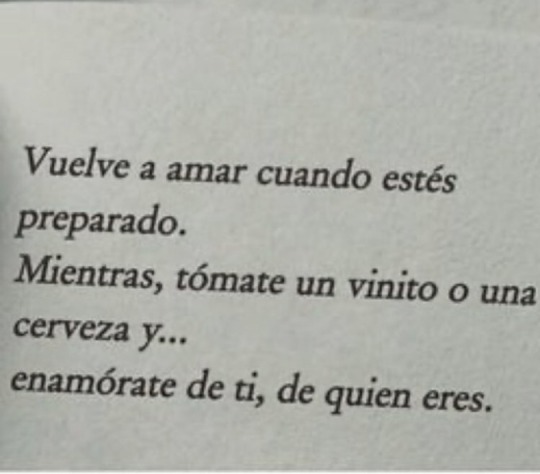#Literatura
Text
Confía en tu intuición. A menudo, sabes más de lo que crees.
#citas#recuerdos#amor#escritos#vida#silencio#emociones#olvido#cosas de la vida#noches tristes#notas de dolor#citas tristes#cosas que pienso#textos#soledad#mis notas#notas en tumblr#desahogo#palabras#en tu orbita#querer#verdades#literatura#amore triste#pensamiento#destino#deseo#poema original#escritos en tumblr#reflexiones
150 notes
·
View notes
Text
La paciencia
Incógnita de nuestros actos
que intentamos analizar,
actitud de la paciencia
que espera siempre el actuar.
Amanda Ackermann

#poesía#escritores#escritores en tumblr#amanda ackermann#vivencias del alma#escritores de tumblr#escritores en español#escritores uruguayos#escritores latinoamericanos#escritores contemporáneos#poetas#poetas en tumblr#poetas de tumblr#poetas en español#poetas uruguayos#poetas latinoamericanos#poetas contemporáneos#poesia#poesía en tumblr#poesía de tumblr#poesía en español#poesía uruguaya#poesía latinoamericana#poesía contemporánea#literatura uruguaya#literatura latinoamericana#literatura contemporánea#literatura
64 notes
·
View notes
Text


#books and libraries#literatura#the bridgertons#polin#trechos de livros#books#quotes#romancing mister bridgerton#nicola coughlan#lady whistledown#luke newton#os segredos de colin bridgerton#colin x penelope#colin bridgerton#penelope bridgerton#penelope featherington
65 notes
·
View notes
Text
The Catalan authors who were kept out of the Nobel Literature Prize for being Catalan
Did you know that there have been a handful of Catalan writers who were candidates to win the Nobel Literature Prize, but because of Spanish interference they never did?
The Nobel Prize discloses its debate and reasoning process 50 years after each edition. This means that we already know the details of what happened in the earliest editions of this Prize, which was started in 1901.
The name of the Catalan play-writer Àngel Guimerà (author of Marta of the Lowlands, Mar i cel, La filla del mar...), whose works have been translated to many languages and played all around Europe and the Americas, with many film and opera adaptations, sounded often in the Nobel committee. He was presented as a candidate to win the Nobel Prize 17 times in a row, since 1907 until his death in 1924. In the editions of 1917 and 1919, many were convinced he would win. However, the declassified documents show why he didn't: as written by the man who was then president of the Nobel Committee, Haralg Härne, Guimerà wasn't given the prize "to avoid hurting the national pride of the Spanish". In 1919, Härne writes that the objective of the Nobel Prize is to promote peace and thus to award Guimerà and show support for a minority culture would be to encourage internal conflict (🤦). The Academy decided that they couldn't give a prize to Guimerà "before awarding another writer who expresses himself in the most ancient noble language of the country" (weird way to mean "the official language", aka Spanish, because they surely didn't mean Basque). In summary, if a Catalan is to be considered, he must always be second to a Spanish man. Even when the Catalan is, in the words of the Nobel Academy, "the most eminent writer of our times", he can never be considered an equal, always must be behind.
Àngel Guimerà wrote in the Catalan language, which was discriminated against by Spanish and considered an enemy by the Spanish government and much of Spanish society. Guimerà was a firm defender of the right to use the Catalan language and that nobody should be forced to speak the imperial languages instead of their own, and was involved with the political movement for the rights of Catalan people. For this reason, every time the famous Swedish academy was considering Guimerà, the Spanish Royal Academy of Language (RAE) fought it with all its might. Nowadays, Guimerà's theatre plays continue to move thousands of spectators every year.
The same happened again with the poet Josep Carner. In the 1960s, Josep Carner was on exile, because he was a Catalan poet writing in Catalan and who stood against the fascist dictatorship of Spain, which persecuted the Catalan language and identity. Famous writers from around the world, including T. S. Eliot, François Mauriac, Giuseppe Ungaretti and Roger Caillois, supported Josep Carner's candidacy to win the Nobel, but the Spanish Government did everything possible to obstruct it. We don't know if Carner would have won or not, but he was deprived of even trying because of the Spanish government's hatred of Catalan.
Something similar seems to have happened between the 1970s and 1990s to three other Catalan poets: Salvador Espriu, J. V. Foix, and Miquel Martí i Pol, where they did not get any support from the Spanish authorities, so we don't know how it would have ended up.
Another example of what it means to have a state actively working against you because of bigotry against your cultural group.
Sources: book Det litterära Nobelpriset by the president of the Nobel Committee Kjell Espmarck, Pep Antoni Roig (El Nacional), Joan Lluís-Lluís (El Punt Avui), and Jordi Marrugat (Institut Ramon Llull).
#literatura#arts#història#àngel guimerà#josep carner#literature#books#reading#nobel prize#nobel literature prize#catalanophobia#catalanofòbia#catalan#cultures#writing#human rights#minority languages#1900s#history
54 notes
·
View notes
Text

7K notes
·
View notes
Text

#mentesexpostas#colleen hoover#lardepoetas#pequenosescritores#textos#escritor#livros#minhas#notas#poemas#meus#livraria#trecho de livro#literature#frase de livro#books#bookblr#meus pensamentos#meusescritos#meusposts#meustextos#literatura#trechos#artists on tumblr#frases#relatos
3K notes
·
View notes
Text

#postdeamor#amor#frases de amor#poemas de amor#citas de desamor#te amo#literatura#escritos#poesia#poemas#ansiedad#depresión#citas de la vida#citas de amor#poema de amor#amor propio#escritos de amor#notas de amor#poema original#relatos#notas tristes#depresion#teamo#te quiero#textos#me siento triste#soledad#sentimientos#frases de la vida#frases y pensamientos
5K notes
·
View notes
Text

Mario Benedetti, La tregua. Martes 19 de Febrero.
3K notes
·
View notes
Text

Pedro Páramo, Juan Rulfo
#escritos#notas#letras#pensamientos#frases#citas#libros#literatura#juan rulfo#sentimientos#tristeza#desamor#soledad#nostalgia#melancolia
2K notes
·
View notes
Text
"Por favor, não espere que eu seja sempre boa, gentil e amorosa. Há momentos em que serei fria, irrefletida e difícil de entender".
- Sylvia Plath
3K notes
·
View notes
Text
Uno de los riesgos de estar callado es que las otras personas pueden llenar tu silencio con su propia interpretación: Estás aburrido. Estás deprimido. Eres tímido. Estás engreído. Eres crítico. Cuando otros no pueden leernos, escriben su propia historia, no siempre una que elegimos o que sea fiel a quienes somos.
— Sophia Dembling
#editions#frases#notas#citas#sophia dembling#escritora#escritos#writings#post#pop#arte#reflexiones#pensamientos#sentimientos#quotes#textos#letras#literatura#español#relaciones#amor#personalidad#psicologia#sanacion#paz#autoayuda#introvertido#depresion#drama#vida
4K notes
·
View notes
Text
Soy de los que dan amor a manos llenas, aunque a veces reciban solo migajas a cambio.
#citas#recuerdos#amor#escritos#vida#silencio#emociones#olvido#cosas de la vida#noches tristes#notas de dolor#citas tristes#cosas que pienso#textos#soledad#mis notas#notas en tumblr#desahogo#palabras#en tu orbita#querer#verdades#literatura#amore triste#pensamiento#destino#deseo#poema original#escritos en tumblr#reflexiones
135 notes
·
View notes
Text
Esa bonita sensación cuando los valores y principios de tu corazón coinciden con el de otro. Entonces, el miedo deja de pesar.
Firthunands
#frases#citas#notas#firthunands#humanismo#nostalgico#pensamientos#sentimientos#quotes#textos#palabras#diario#letras#literatura#español#a#writings#pop#arte#amor#romance#vida#realidad#relaciones
4K notes
·
View notes
Text

George Orwell - 1984
1K notes
·
View notes
Text

6K notes
·
View notes
